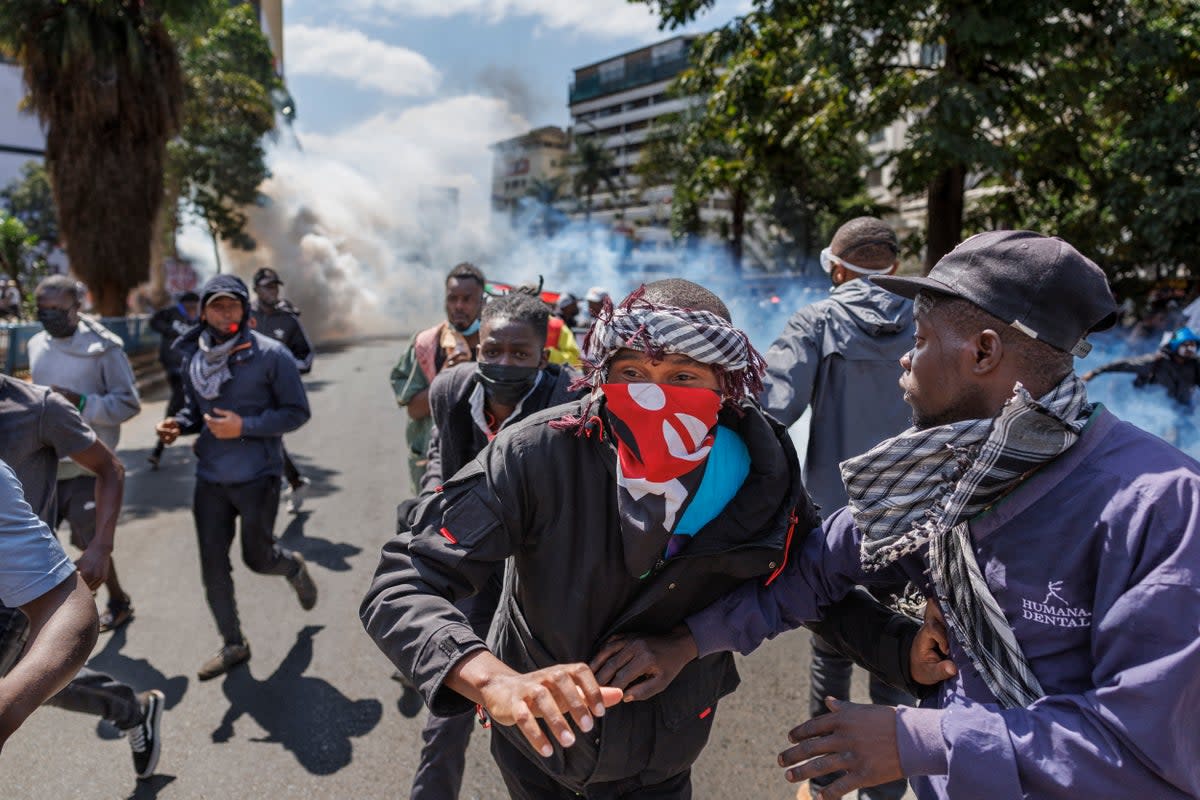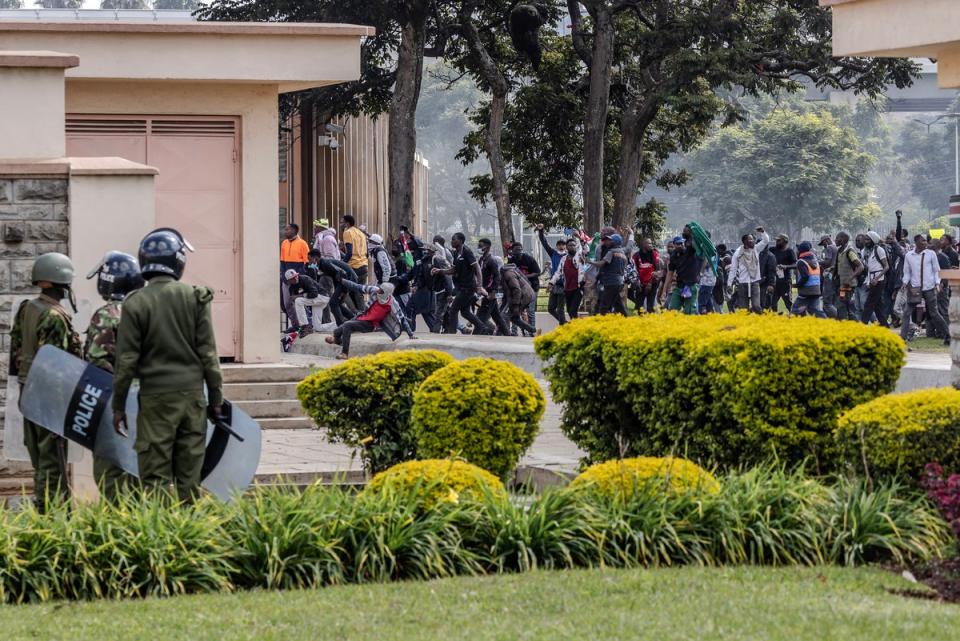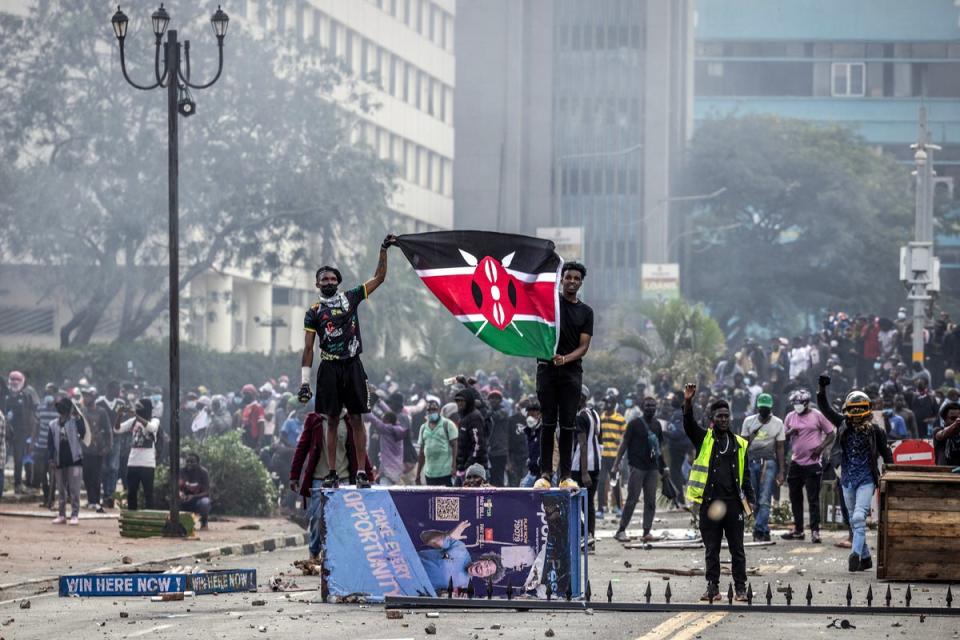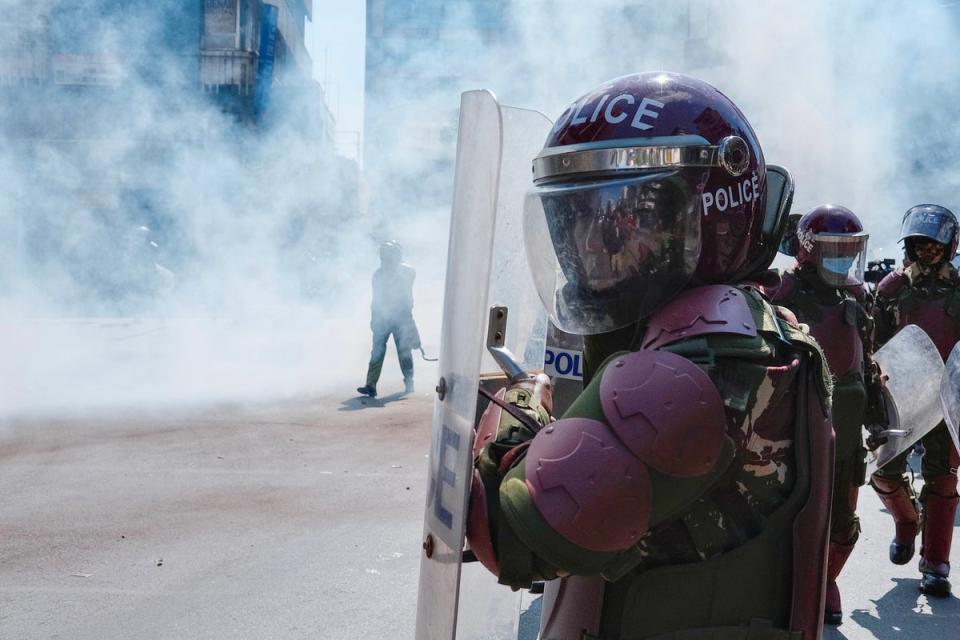Police in Kenya open fire on protesters as crowd seek to storm parliament

Police opened fire on demonstrators trying to storm Kenya’s parliament – leaving a number of people dead and dozens more injured – after a controversial tax bill was passed.
Protesters overwhelmed police and chased them away in an attempt to storm the parliament compound. Video from inside the building showed tables and chairs overturned and smashed, while footage from outside showed sections of the parliament building on fire, tear gas smoke and dozens of armed police.
A paramedic, Vivian Achista, told Reuters that at least 10 had been killed. Another paramedic, Richard Ngumo, said more than 50 people had been wounded by gunfire. He was lifting two injured protesters into an ambulance outside parliament.
Protesters could be heard shouting “We’re coming for every politician” and some lawmakers were forced to flee parliament through a tunnel.

“We want to shut down parliament and every MP should go down and resign,” said protestor Davis Tafari, who was trying to enter parliament. “We will have a new government.” The protests started a week ago. Last Thursday, one person was killed and at least 200 people injured in demonstrations across the country, according to human rights groups and the Independent Policing Oversight Authority (Ipoa), a police watchdog.
The bill would introduce new taxes, including an eco-levy raising the price of goods like period products and nappies. A proposal to tax bread was removed after public outcry – with many Kenyans frustrated over the rising cost of living.
Parliament approved the finance bill, moving it through to a third reading by lawmakers. The next step is for the legislation to be sent to the president for signing. He can send it back to parliament if he has any objections.
Kenyan president William Ruto won an election almost two years ago on a platform of championing Kenya’s working poor, but has been caught between the competing demands of lenders such as the International Monetary Fund, which is urging the government to cut deficits to obtain more funding, and a hard-pressed population.
The finance bill aims to raise an additional $2.7bn in taxes as part of an effort to lighten the heavy debt load, with interest payments alone consuming 37 per cent of annual revenue.

Opposition leader Raila Odinga called for the finance bill to be immediately and unconditionally withdrawn to make way for dialogue. “I am disturbed at the murders, arrests, detentions and surveillance being perpetrated by police on boys and girls who are only seeking to be heard over taxation policies that are stealing both their present and future,” he said in a statement.
The government has already made some concessions, promising to scrap proposed new taxes on bread, cooking oil, car ownership and financial transactions. But that has not been enough to satisfy protesters.
The Kenya Human Rights Commission shared a video of police firing off shots and said they would be held to account.
Addressing Mr Ruto, the commission wrote on social media: “The world is watching your descent into tyranny!
“Your regime’s actions is an assault on democracy. All those involved in the shooting – actively or passively – must be held to account.”
The president had earlier said he wanted to have dialogue with the protesters and was “proud” of them. But security forces have been accused of abducting prominent Kenyans, especially those with large social media followings.

Kenyan broadcaster KTN News also said authorities had threatened to shut it down over its coverage of the protests.
Police also fired tear gas in Eldoret, Mr Ruto’s hometown in western Kenya, where crowds of protesters filled the streets and many businesses were closed for fear of violence.
Clashes also broke out in the coastal city of Mombasa and demonstrations took place in Kisumu, on Lake Victoria, and Garissa in eastern Kenya, where police blocked the main road to Somalia’s port of Kismayu.
In Nairobi, people chanted “Ruto must go” and crowds sang in Swahili: “All can be possible without Ruto”. Music played from loudspeakers and protesters waved Kenyan flags and blew whistles in the few hours before the violence escalated.
Kenya’s Ipoa chair Anne Makori urged police to exercise restraint while noting the killing of a protester and injuries sustained by demonstrators and police officers.
Ambassadors and high commissioners in Kenya from countries including Britain, the United States and Germany said in a joint statement that they were deeply concerned by violence they had witnessed during recent anti-tax protests.
They also called for restraint on all sides and encouraged all leaders to find peaceful solutions to the protests in the statement shared by the British High Commission via its Twitter/X account.
“We regret the tragic loss of life and injuries sustained including by the use of live fire,” the statement said.
Reuters contributed to this report


